Mourning the loss of an entire senior year to Zoom university
How the class of 2020 and 2021 recreated their final university experiencess in face of an unprecedented senior year
by Rowan Born
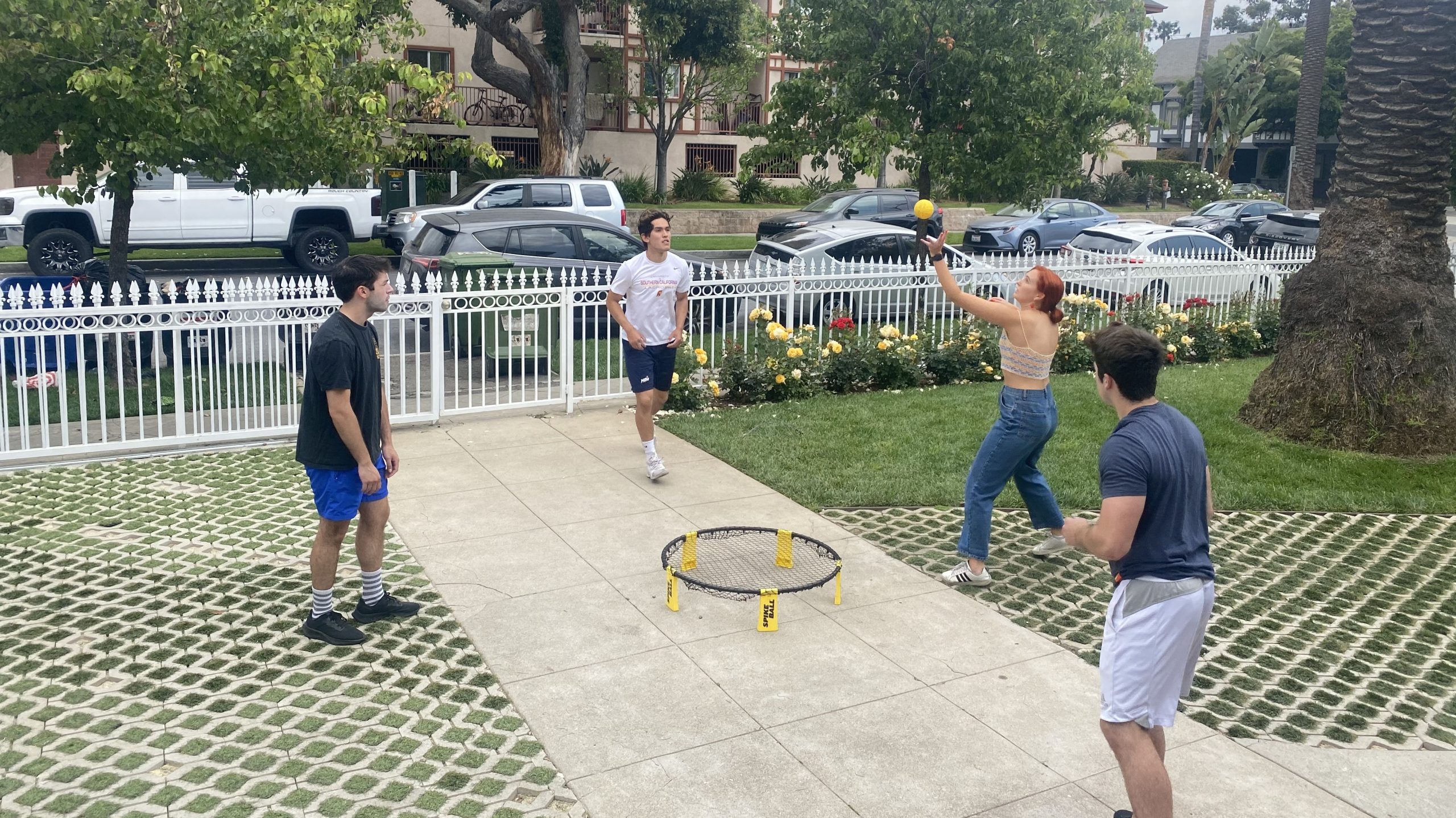
INTRODUCTION
Hailey Kragelj, 22, was set to receive her diploma from the University of Southern California in May 2020 with two undergraduate degrees in theatre and narrative studies. No need to include the caveat that this setup meant a full in-person ceremony — with a sea of graduation caps, proud parents sitting in rows of chairs beneath the blazing sun, handshakes when walking across the stage, and all — because, well, that was how the world worked at the time.
In addition to anticipating graduation, Kragelj was in the process of producing “The Birdcage Experiment,” which would’ve been the final theatre show for her student-run theatre company, Brand New Theatre. (Appropriately enough, the play was about a group of people who hide out in a bunker when their town is devastated by a disease outbreak). The cast and crew began their tech week on March 9 in preparation for opening the show the week after USC’s spring break, but when the university sent out a memo the next day stating that all university-sponsored events from March 11-29 were canceled, the show was reduced to a one-night final dress rehearsal on March 11 before dissipating altogether.
The only thing that I really missed out on was the idea of what I thought it was going to be. Nothing really changed. We’re forced to shift direction, and maybe we end up at a different but equally okay place.”
– Hailey Kragelj, a spring 2020 graduate of USC
“That was our big like last hurrah, all of us being theater majors and trying to do one last thing before our senior year basically exploded,” Kragelj said. “We figured you know, we might as well do it anyway, so that was the last big thing I did right before the pandemic.”
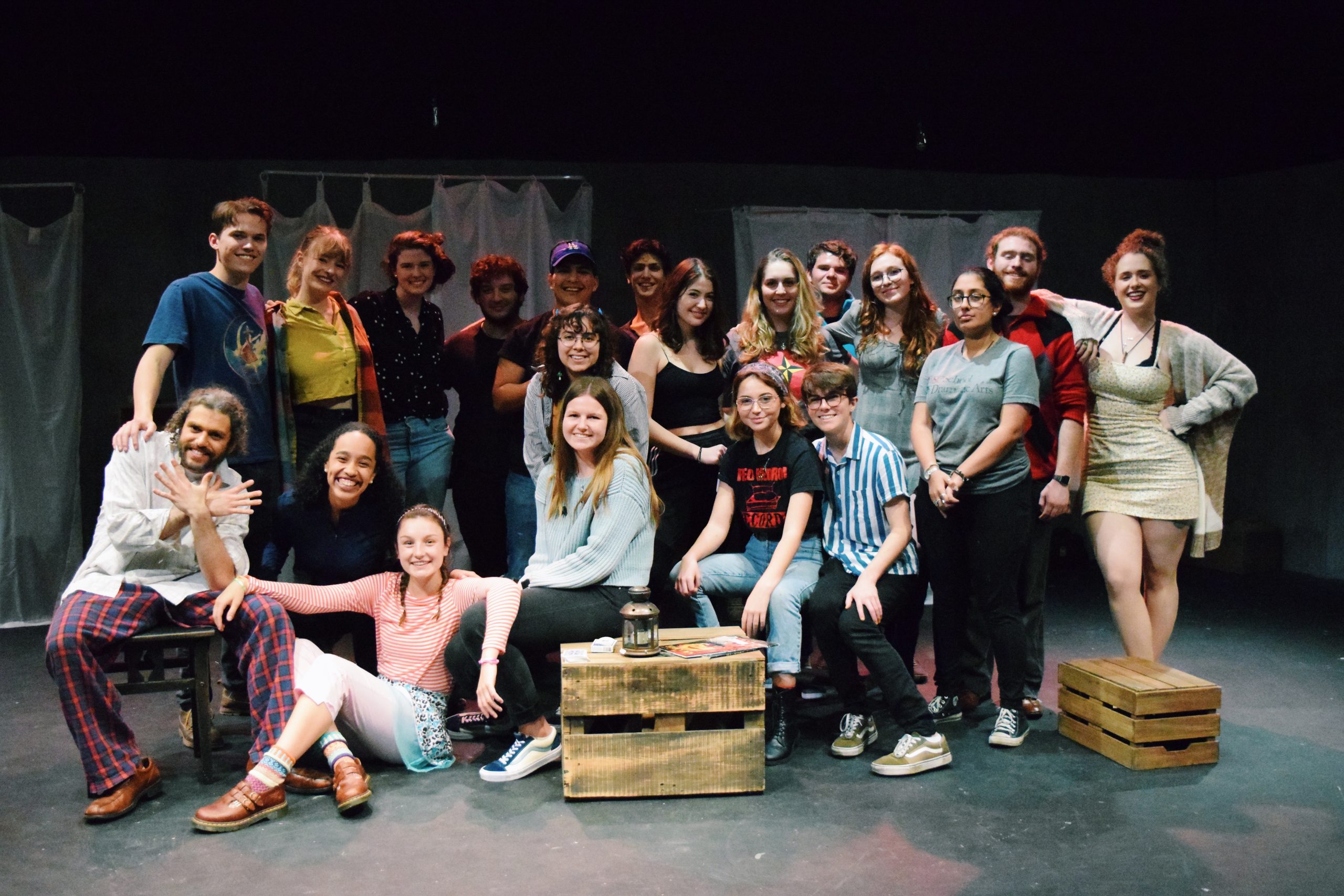
On March 21, only a short 11 days after receiving the memo, Kragelj was packing her bags to make the 24-hour drive home with her parents to Vancouver, Canada, where she has remained since. Like many of her class of 2020 peers, Kragelj initially assumed quarantine was only going to last for a brief few weeks until life resumed its original programming. What began as a canceled show and extended spring break, though, devolved into entirely remote classes held online, all tied poorly together with a Zoom graduation — far removed from the celebration she once envisioned.
“I was met with a reality that was my own personal non-reality,” Kragelj said. “I wasn’t entirely in denial, but I was sort of hanging on to the things that I thought might happen. Obviously, at every turn, they did not.”
While Kragelj was adjusting to what would become a virtual end to her senior year, Becca Schmidt, a then-junior at Gettysburg College majoring in religious studies, was thousands of miles across the Atlantic Ocean in Athens, Greece. Schmidt, 21 at the time, was scrambling to fly home to Chester Springs, Pennsylvania after her study abroad program was abruptly canceled following former President Trump’s travel ban. Though she was devastated about losing her abroad experience, she was initially grateful to not be graduating into the pandemic, unlike the fate afforded to the class of 2020.
“I felt bad for the seniors last year while I was mourning the loss of my own junior year, but I thought well, at least I have the rest of my senior year to do all the things I didn’t get to do,” Schmidt said. “In just no way did I expect it to be this.”
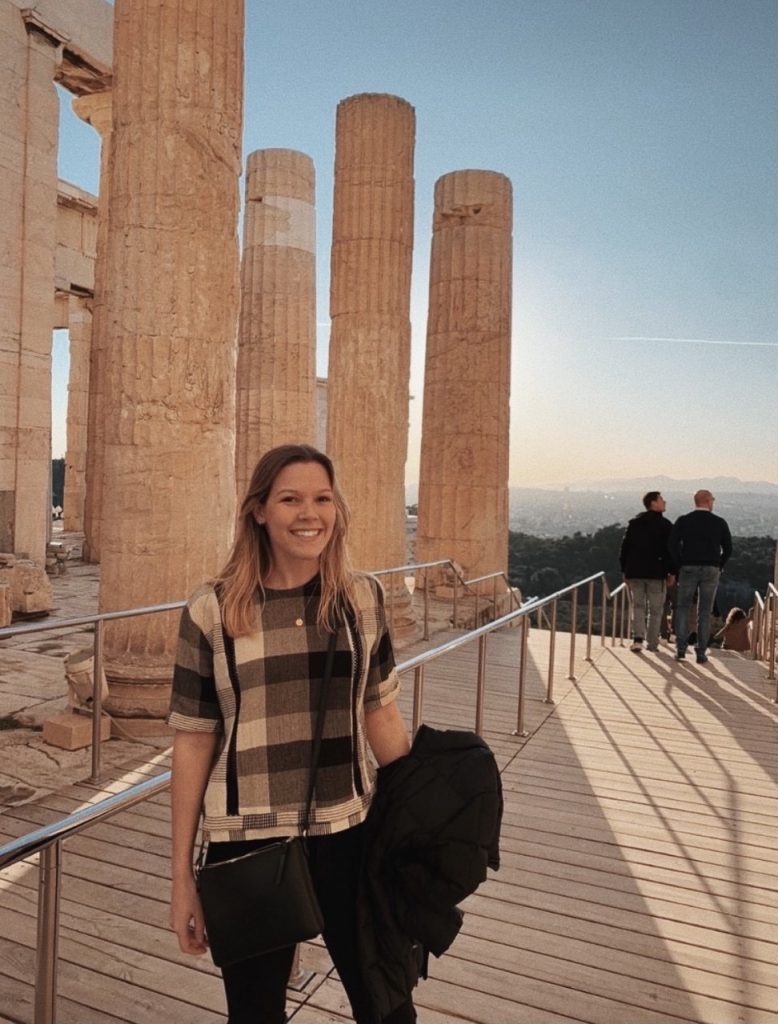
Now a year later, another round of spring graduations is looming, and the class of 2021 has endured an entire academic year compromised by COVID-19. Without traditional in-person university life at their disposal, college seniors have been left to their own devices to reimagine their final undergraduate year while navigating the transition into postgraduate life.
Schmidt and Kragelj are just two of countless college seniors or recent alumni who have been placed in a compromised post-grad predicament. While everybody has had their lives affected by the pandemic in one way or another, the question then becomes not what is entirely lost, but what can be recreated in its vacancy?
CAMPUS/SOCIAL LIFE
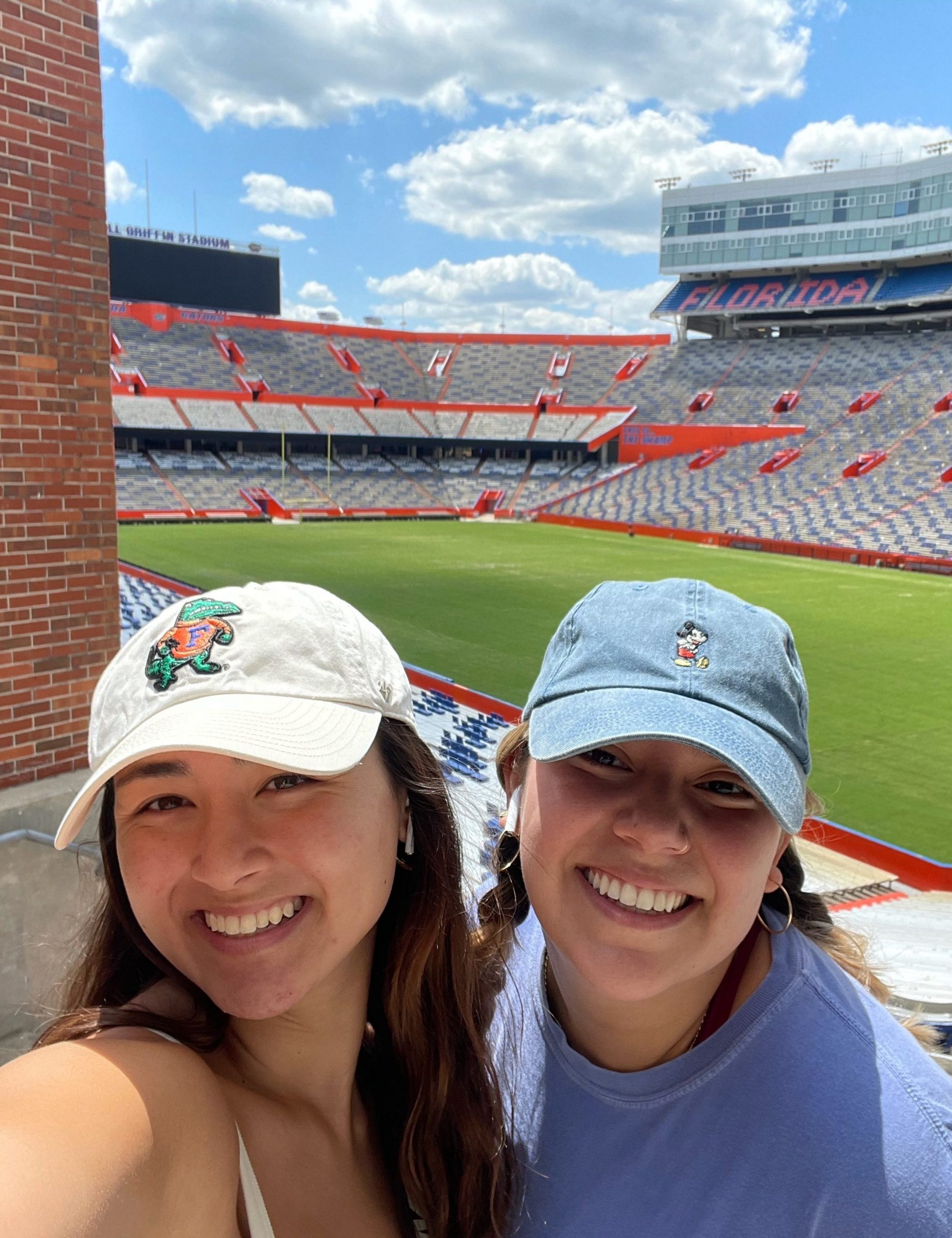
For Jasmyn Nguyen, a senior studying business at University of Florida, the fall 2019 semester was the only full campus life experience she’s had in college. Nguyen, 22, transferred to UF in the fall of her junior year as an online-only student. Even without in-person classes pre-pandemic, she decided to move from her hometown of Pensacola, Fla. to Gainesville, Fla. to capitalize on the social benefits of living in a college environment. However, when the pandemic began and her campus shut down, Nguyen had no choice but to succumb to the college experience as lived through a screen, which was all she had known while at UF in the first place.
“I definitely feel like I’ve been robbed, and not even just because of COVID, but also because my personal journey only gave me one semester of the college experience,” Nguyen said. “That’s what I’m struggling with now, realizing that there’s literally seven weeks left but I feel like I’ve missed out on so much.” (Note: Nguyen’s interview was conducted in March 2021. Nguyen has since graduated).
Charlotte Sendi, 21, a senior studying chemical engineering at the University of Southern California, shared a similar panic about missing out on the coveted college experience, especially after making the decision to stay home in Alexandria, Va. for the entire school year. On one hand, Sendi has touted making the most of the extra time with her family while virtually eliminating any distractions from her school work. On the other hand, though, as a self-proclaimed extrovert, she’s had difficulty connecting with the beloved social aspects of college that previously defined her life outside of the classroom.
“There have been a couple times I’ve just gone down to our basement, played some music, had two White Claw and just been like, all right, we’re gonna do this tonight,” Sendi said.
In hopes of squeezing in a little more college fun before graduating, Sendi has decided to return to USC in the fall of 2021 for an additional part-time semester, which she says she would not have done had there been no pandemic.
“I feel like it’s been kind of difficult to get the full experience, which was frankly the reason why I’m staying next semester,” Sendi said. “There’s so much you’re missing out on. You’re not just taking classes at USC. You’re going to football games, you’re in research, or in clubs and things like that. Honestly, I just think I’m missing the experience — I don’t even think I’m even able to recreate most of it.”
In lieu of running around between student organizations and parties, Sendi has taken up drawing to fill her spare time, which has not gone without notice. She regularly publishes Disney-themed digital art on her TikTok @designs.by.char, where she has garnered almost 300,000 followers and over 4 million cumulative likes.
The biggest downside with moving home was I’ve forgotten how to live on my own. I’m returning to USC in May, but it feels like I’m a freshman in college again. Of course, I’m excited, but I’m having to basically restart my life.”
– Charlotte Sendi, a current senior at USC
Conversely, Nathan Zhang, 22, a senior studying biology at Drexel University, found himself much more at peace without a busy social schedule. Prior to the pandemic, Zhang, had identified as an introvert, so when COVID first put everyone on lockdown, not much personally changed for him. Instead, Zhang has been better able to enjoy his most treasured pastime: Playing video games. Some of his favorite games include “League of Legends” and “Valorant,” and his love for video games has even translated to him joining the Drexel Esports & Gaming Association, which has weekly practices.
“I spend a lot of time online, so the worst case scenario for me was kind of the norm anyways,” Zhang said. “I’ve kind of maintained a lot of friendships through gaming and talking to them online, so it hasn’t been that bad.”
Additionally, Zhang has taken up streaming his gameplays on Twitch, which he said was more of a hobby to entertain his friends than to attract an audience.
“I stream for them and then sometimes they pop in and say hi,” Zhang said. “It’s like a nice little bit of social interaction for me.”
However, Zhang did expect a little more company than he was getting. To provide more substance to his lean social opportunities, Zhang has enjoyed helping out with his roommate’s weekly Friday dinners. His roommate, a fellow Drexel student, is a part of the ice skating club at the neighboring Pennsylvania State University, and every Friday he invites a few of his ice skating teammates over for a home-cooked dinner, which have become the central people Zhang and his roommate see in-person.
I don’t know if my outlook has changed much. I’ve always been pretty adaptable when it comes to my future. This paradigm has really just highlighted the importance of being adaptable, even if the world is shutting down.”
– Nathan Zhang, a current senior at Drexel University.
Ultimately, Zhang has learned he values socialization over isolation more than he once thought.
“I think I’ve learned that I do crave talking to other people,” Zhang said. “I can’t just sit in my room and play video games alone for eight hours. I can probably do it for four hours and I need to talk to someone for the other four hours.”
Alan Tang, 22, also found himself reevaluating how he approaches maintaining a social life without campus life to provide structure. Before graduating from Brown University in fall 2020 with a degree in computer science, Tang originally planned to return to Providence, R. I. that fall to live off-campus for his final semester. Since many of his friends had either just graduated or were international students who had opted not to return, Tang ended up deciding to stay home in San Diego, California, where he found himself reckoning with how challenging it was to maintain friendships remotely.
“To be quite honest, I did not make many friends through Zoom university. The few friends I did make were people I sort of knew pre-pandemic, the kind you only text to work on assignments together,” Tang said. “I did not have the best experience of Zoom university, but with the state of the world seeing everyone else’s experiences, I think you can be a lot worse, which is why I’m not too salty about the end of my senior year.”
While at home, Tang kept his social circle limited, but he couldn’t help but long for the student community that was once his everyday. So, he and four of his high school friends opted to rent an Airbnb in Los Angeles for the month of September 2020 to mimic the social life he was used to having in college.
“I was doing school at the time, but the friends I was living with were all working. That was such an interesting dichotomy,” Tang said. “It did give me the social interaction that I had not felt since pre-COVID. Just being able to live with my friends and eat meals with them every day, it was definitely something I’m happy I made the decision to do.”
Like Zhang, Tang’s forced isolation provided him a newfound outlook on how he values his relationships and what work is required to keep these up, especially when the convenience of college life is taken out of the picture.
“I’m going to really make an effort to reach out to people, whether it’s at work or in my own social life, but, like, reach out to those people and have conversations that have substance,” Tang said. “I know if I want to build relationships that will last in the pandemic work-from-home world, I’m going to need to put in more effort than I’m used to.”
CAREER/POST-GRADUATE PROSPECTS AND TRANSITIONING INTO ADULTHOOD
For Daniel Merhi, 22, a senior studying Chinese at the University of Southern California, his COVID-19 complications began a little while before the infamous shutdown threw a wrench in everyone’s lives. A second-semester junior at the time, Merhi was visiting a few friends who attended school on the East Coast before he leaving to study abroad for the semester in Beijing, China. Three days before his flight, though, USC sent him an email informing him that his program had been canceled due to the outbreak.
“I was devastated. I think I cried,” Merhi said. “I’m a Chinese major. China is my life. I’ve been to China four times, but I’ve never studied abroad in the context of being a regular student taking normal classes for my major but taught in Mandarin. It was the peak academic college experience that I was looking forward to since high school.”
In hopes of fitting in a semester abroad in China, Merhi did not take classes in the fall 2020 semester. Instead, he planned to finish out his time at USC in spring 2021, walk at graduation with all of his friends, and enroll in an additional fall semester this year to finally venture off to China. However, Merhi has still not confirmed whether he will be able to study abroad in the fall.
“This has definitely made me very anxious because I assumed I would’ve made some connections in China last spring. I should’ve put more responsibility on myself to look into things now, but it just feels less natural because there’s nothing for me to fall back on in China right now,” Merhi said. “Ideally, I’d try to look for work in China over summer and be there for a little before starting school in fall, but I don’t even know if I can be there in the fall.”
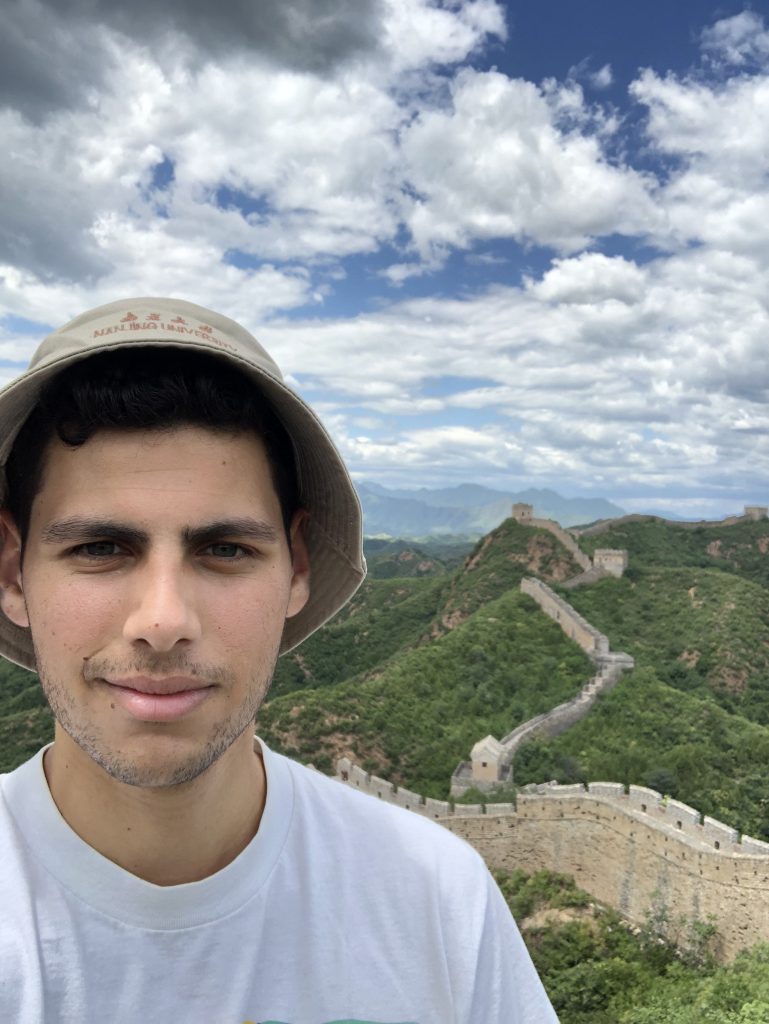
Keyana Mahallati, 21, a fall 2020 graduate of Florida State University, has maintained relative certainty about her post-grad path, but keeping her eyes on the prize has proven rocky with the world otherwise at a stand-still. Mahallati had always planned to graduate a semester early with a bachelor’s degree in health professions and related clinical services, but she, like Tang, decided to remain home with her family for her final semester to stay safe and save money.
“After moving home, I didn’t really feel like I was in college anymore,” Mahallati said. “My family threw me a little graduation party, so I felt a sense of accomplishment because I had my loved ones celebrating with me. It was still weird though because I was at home and not used to anything that was going on.”
In my head, this never happened. I was going to have a great senior year, knowing this was the last hurrah for us. But it’s human to end up having to adjust your environment. That’s not a bad thing.”
– Keyana Mahallati, a fall 2020 graduate of Florida State University.
Since graduating, Mahallati has been working as a patient care technician in Pensacola and studying for the MCAT while she prepares to apply for medical school. Without friends, a library, or a school schedule in her immediate vicinity to keep her accountable, though, she’s found motivating herself to study rather taxing.
“Honestly, it’s very weird, living at home after graduating and trying to balance doing the work I need to do to get to the next stage of my life,” Mahallati said. “It’s hard to find a balance when you have nothing that’s due and you’re not in the same environment as you were whenever you were studying all the time. It’s all felt very off.”

Tang has also remained steadfast in his chosen career field, but where that would locate him has been a toss-up. Last summer, he worked a remote virtual internship for an investment bank in San Francisco, but his lack of physical connection to the company left little to be desired when deciding whether to return. Given the extra time to decide what his next step would be, Tang decided to make the leap and accept a job in New York City, where he has dreamed of moving since he was young.
“If the internship had been in person and I had been able to meet all of those people face-to-face to develop those real relationships with them, I think I might have been a little bit more reluctant to take another job offer,” Tang said. “Because I didn’t have all of that, plus like my desire to want to move to New York since I was like a kid, I decided to make the switch.”
As a former theatre major, Kragelj’s original post-grad plans were also to move to New York, except she wanted to work in theatre production. Because of her few underlying conditions (though she’s not entirely immunocompromised), Kragelj has been warier of COVID-19, which kept her home in Vancouver for longer than expected and forced her to reconsider her options. Additionally, as an international student, Kragelj would have been on the hunt for a U.S. work visa sponsorship, which she points out is difficult to come by in the arts industry.
“I can’t fully recognize the repercussions of missing out on that time because we’re still in the midst of the pandemic,” Kragelj said. “I didn’t necessarily lose something, but I lost the opportunity to do something that I thought was going to lead to what would have been very important in my career.”
As an alternative, Kragelj ended up taking a position as an independent contractor for a copywriting company. It may have not been her dream job, but it was at least a stepping stone to pause on before making the big leap to the ultimate goal.
“Right now we’re in the process of applying for my visa, which is exciting, but U.S. work visas are specific to the job that you get them for,” Kragelj said. “When this career is not the career that I wanted, it’s good but it’s only so good.”
Hear more about Kragelj’s hunt for a U.S. work visa in the audio clip below.
Gabrielle Robinson, 23, graduated from USC in the fall of 2020 with her bachelor’s in design and photography, but she decided to continue her studies at USC with a master’s in innovation, design, business, and technology. During her 2019 fall and spring semesters, Robinson had to take a medically reduced course load, which made setting expectations for her compromised pandemic senior year at home in Riverdale, New York a bit easier. Some would view this setup as unfortunate or disappointing, but not Robinson.
“My optimistic outlook can sometimes irk people, but I let go of the experience that I was having because a senior year on zoom is not the typical one,” Robinson said. “Instead, I’ve focused on myself and growing my personal business.”
Like Kragelj, Robinson returned to her hometown in the spring 2020 semester, where she has remained out of the best interest of her health. Her diagnosis with chronic illness put her at a higher risk of contracting COVID-19, so she has stayed extremely socially isolated throughout quarantine. With the extra time, though, she’s found herself being incredibly productive professionally. Robinson works as a social media content manager, which involves creating branded content for her own accounts across platforms (especially Instagram and TikTok), working with influencers, serving as a digital strategist for brands, and overseeing others’ social media pages. She recently launched her own website, which showcases her brand and larger body of work.
“This past year, I’ve really done a lot of reflecting on my social media accounts, which has become an integral part of my career and the work that I’m doing now,” Robinson said. “That’s ultimately why I decided to stop focusing on nine to five. I’m in grad school learning further about business, psychology, and technology design so I can do all of this work more intelligently.”
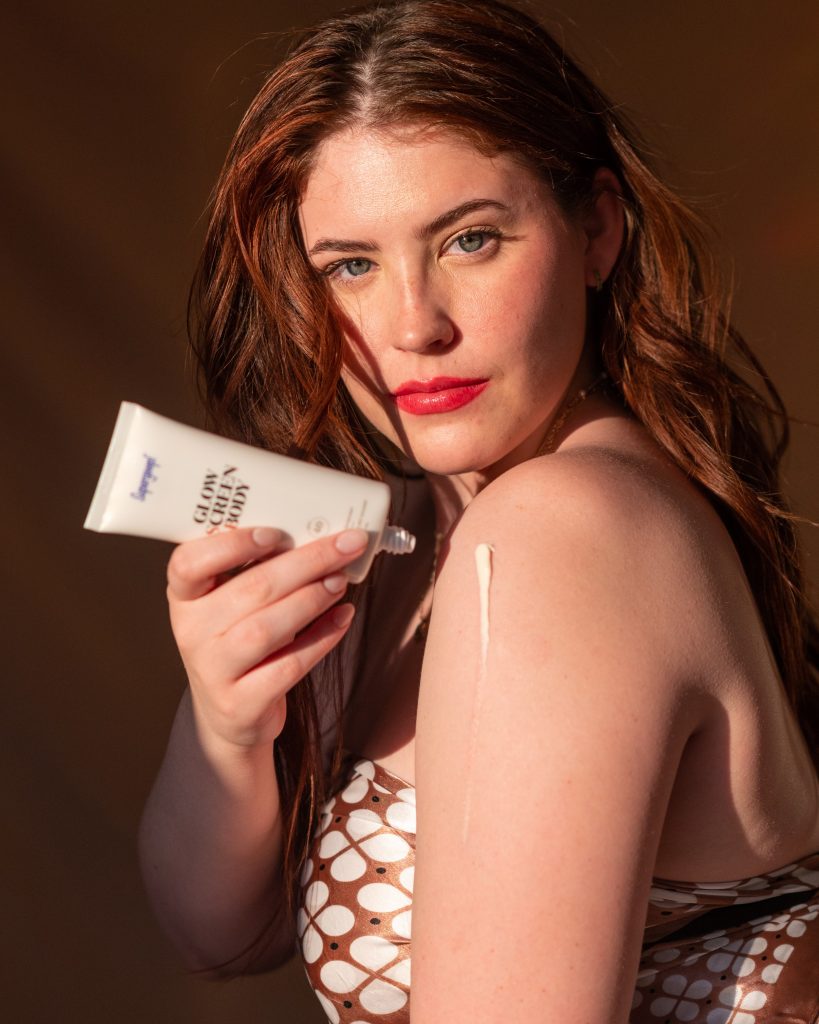
None of these graduates are alone with feeling up and down about the transition to postgraduate life, especially in terms of the professional sphere. Surprisingly, though, the job market is more promising than not for the emerging postgrad workforce, especially compared to last year when the pandemic began. According to a report from the National Association of College and Employers, employers project hiring 7.2 percent more new college graduates from the class of 2021 than they did from the class of 2020. Compared to May 2020’s young adult (ages 20-24) unemployment rate of 23 percent, the April 2021 unemployment rate rests around 10.5 percent, which is a significant improvement.
However, these optimistic numbers may be misleading, considering the number of entry-level job listings has decreased by 68 percent from last year, according to a report by Glassdoor. This presents the problem of underemployment, where recent grads are then forced to work jobs they are overqualified for. Prior to COVID-19, underemployment for recent grads fell at about 40 percent, but with the varying circumstances surrounding the pandemic labor force, that statistic may presently be much higher. It’s uncertain when exactly the job market will level out and become more inviting for young people seeking work. As the pandemic world has stripped accessible professional resources for young adults — much like it had limited the nature of student life at universities — seniors and recent alumni are again tasked to make the most of what little they have, with the hopes of not letting themselves become entirely lost in the process.
LOOKING AHEAD/LESSONS LEARNED
Merhi found that the biggest life lesson he has learned throughout the pandemic is how to tune into the nuances of interpersonal relationships. Merhi lives near the USC campus in a house with 10 other roommates who have been his closest friends since freshman year, but the pandemic and constantly being around the same people has inevitably strained those relationships.
“Pre-pandemic life, it’s easier to never confront things because you’re around so many people and you don’t have to confront issues. In pandemic world, things are issues because you’re always seeing the same people, so you have to confront things,” Merhi said. “Now I just view people in terms of who would I hang out with during COVID, where you have to limit the amount of people you interact with. It’s made me realize it’s better to have four quarters than 100 pennies, as cheesy as it sounds.”
Though her senior year and transition into post-grad wasn’t exactly what she envisioned, Kragelj also recognizes that nothing really changed; instead, opportunities for other things simply opened up.
“I guess the only thing that I really missed out on was the idea of what I thought it was going to be. Nothing really changed,” Kragelj said. “These bad turns are still leading towards something, even if it’s not the exact thing you wanted. We’re forced to change direction, and maybe we end up at a different but equally okay place. I guess we don’t know that, because the other thing that ever happened.”
Social media tells you your life is over after senior year because up until now, our whole identity is being a student. I’ve realized I have three-quarters of my life left to figure out who I am, so I’m just trying.”
– Jasmyn Nguyen, a current senior at University of Florida.
For Sendi, she’s ready to get back to the life she once knew at USC, but she knows returning to independence will involve an intense period of readjustment after living at home for so long.
“The biggest downside with moving home was I’ve forgotten how to live on my own. I’m returning to USC in May, but it feels like I’m a freshman in college again,” Sendi said. “Of course I’m excited, but I’m having to basically restart my life.”
As Schmidt points out, everything ultimately will work out on some level, whether or not it’s in your control. As she nears graduation, Schmidt admits that she has been left to reconcile with the fact that she won’t always have things figured out in their entirety, and that’s okay. Many seniors have faced this predicament before (though admittedly, not with a pandemic per se), and many will face it in years to come. If anything, by the pandemic throwing a wrench in her agenda and everyone’s agendas, the past year has better prepared her for the wonderful, exciting unknown that is postgraduate life.
“I think I’m the kind of person who really likes to plan. I like knowing how things are going to go ahead of time and everything, but the past year has taught me that I need to let go of that,” Schmidt said. “Moving forward in my life with no current post-grad plans, I need to be able to not become obsessed with a plan. I think altering my way of thinking will really benefit me in the long run, not being so rigid in the way that I need everything to go exactly the way that I wanted to.”
Whether it’s virtual or in-person, move that grad cap tassel from right to left with pride, class of 2020 and 2021. You deserve it, no matter the chaos, ennui, tears and moments of joy encountered along the way. This has been quite the year — forgettable in some ways and excruciating memorable in other ways — that we can all agree on, at the very least.